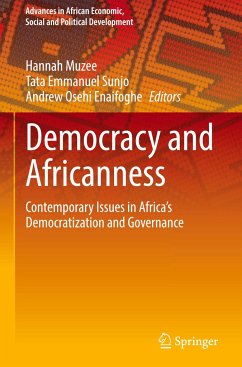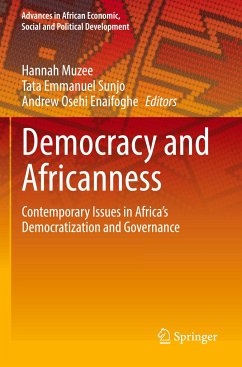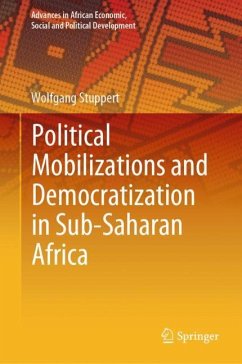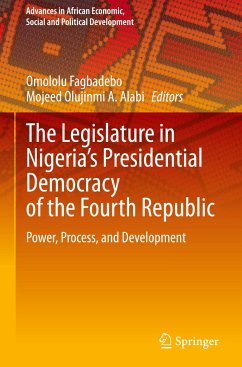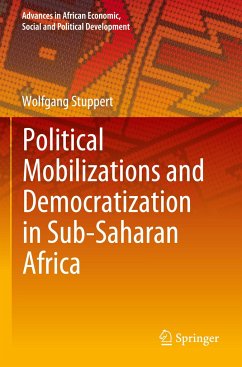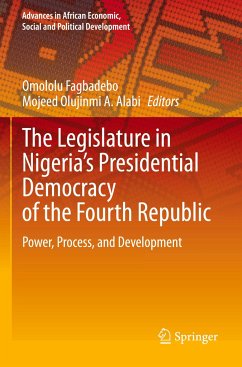
Reimagining Justice, Human Rights and Leadership in Africa
Challenging Discourse and Searching for Alternative Paths
Herausgegeben: Benyera, Everisto

PAYBACK Punkte
38 °P sammeln!
Failed attempts in Africa to develop, democratise and instil virtues of a just state and society which promote benevolent leadership and advance political and economic rights and freedoms call for a 'new' imagination. By exploring a wide range of issues concerning justice, human rights and leadership, this book makes two major contributions to the extant literature in each of these areas. Firstly, as a project in decoloniality, it constitutes an 'epistemic break' from mainstream logics and approaches to understanding state, society and development in Africa, presenting an approach that is filt...
Failed attempts in Africa to develop, democratise and instil virtues of a just state and society which promote benevolent leadership and advance political and economic rights and freedoms call for a 'new' imagination. By exploring a wide range of issues concerning justice, human rights and leadership, this book makes two major contributions to the extant literature in each of these areas. Firstly, as a project in decoloniality, it constitutes an 'epistemic break' from mainstream logics and approaches to understanding state, society and development in Africa, presenting an approach that is filtered through a Euro-American lens that reifies the hegemony of a particular spatio-temporality. In other words, it emphasises the importance of situatedness by thinking from rather than about or with Africa. And secondly, it addresses a fundamental shortcoming in decolonial thought, which is often criticised for rejecting western paradigms of thought without providing viable alternatives.
The issues covered include state failure in Africa, the geopolitics of US and NATO military interventions on the continent, individual states' responses to international law, indigenous moral political leadership, authentic inclusion of marginalised voices in development practice, an endogenous approach to environmental ethics, and a spiritualist reflection on the need for Africa to chart her own course to political, social and economic redemption. By searching for alternative paths to justice, human rights and leadership, this book represents an effort to actualise the core vision of the African Renaissance to find 'African solutions for African problems'.
The issues covered include state failure in Africa, the geopolitics of US and NATO military interventions on the continent, individual states' responses to international law, indigenous moral political leadership, authentic inclusion of marginalised voices in development practice, an endogenous approach to environmental ethics, and a spiritualist reflection on the need for Africa to chart her own course to political, social and economic redemption. By searching for alternative paths to justice, human rights and leadership, this book represents an effort to actualise the core vision of the African Renaissance to find 'African solutions for African problems'.




